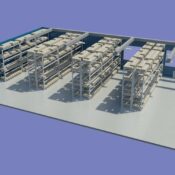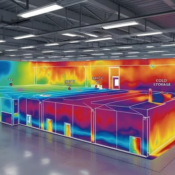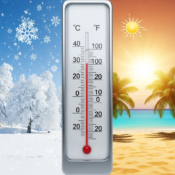The aviation sector plays a vital role in connecting people, goods, and businesses across Saudi Arabia and the world. With Vision 2030 driving rapid growth in transportation and logistics, the Kingdom’s airports in Riyadh, Jeddah, and Dammam are handling an increasing volume of passengers and cargo every year. In this fast-moving environment, temperature mapping study has emerged as a crucial tool to ensure safety, efficiency, and comfort both in cargo operations and passenger experiences.
Temperature Mapping in Cargo Safety
Airlines in Saudi Arabia transport highly sensitive goods such as pharmaceuticals, fresh food, electronics, and even live animals. These items can be easily damaged if exposed to extreme heat or fluctuating temperatures, which are common challenges in desert climates. A temperature mapping study allows aviation companies to analyze how temperatures vary inside cargo holds, storage facilities, and ground handling areas.
By conducting a temperature mapping study, airports and airlines in Riyadh, Jeddah, and Dammam can identify hot spots, weak airflow zones, or areas where insulation is insufficient. This data-driven approach helps prevent spoilage, reduces waste, and ensures compliance with international safety standards such as GDP (Good Distribution Practice) for pharmaceuticals.

Protecting Pharmaceutical Shipments
Saudi Arabia’s pharmaceutical industry is expanding rapidly under Vision 2030, and many life-saving drugs are imported and exported through the Kingdom’s airports. These shipments must be stored and transported within strict temperature ranges to remain effective. A temperature mapping study ensures that airport storage areas, cold rooms, and cargo planes maintain the correct climate at all times.
For example, a shipment of vaccines traveling from Riyadh to Jeddah must remain within 2–8°C. Without proper monitoring, even a short exposure to high desert temperatures could compromise the entire batch. Through temperature mapping study, risks like these are minimized, making Saudi Arabia’s aviation sector a reliable hub for global pharmaceutical logistics.
Enhancing Passenger Comfort
It’s not just cargo that benefits from temperature mapping study—passenger comfort is also a key area. Aircraft cabins, airport lounges, and boarding areas in Saudi Arabia must provide a safe and comfortable climate for travelers, especially during the intense summer heat.
A temperature mapping study inside aircraft cabins can identify variations in airflow and temperature distribution. This ensures that cooling systems are properly adjusted, preventing situations where one part of the cabin feels too hot while another feels too cold. In Jeddah, Dammam, and Riyadh airports, similar studies can be applied to waiting areas and jet bridges to guarantee a smooth passenger experience.
Supporting Vision 2030’s Growth
Saudi Arabia’s aviation sector is central to Vision 2030’s ambition of becoming a global logistics hub. For this vision to succeed, safety and reliability must remain top priorities. By integrating temperature mapping study into aviation practices, the Kingdom ensures that its infrastructure is ready for future growth.
From securing perishable goods to protecting pharmaceuticals and improving passenger comfort, temperature mapping study is a powerful tool that aligns with global best practices. It helps reduce operational risks, improves customer trust, and enhances the overall quality of aviation services in Saudi Arabia.
Eximia360: Your Partner in Temperature Mapping
At Eximia360, we specialize in providing expert temperature mapping study services across Saudi Arabia, including Riyadh, Jeddah, and Dammam. Our team uses advanced tools and methodologies to analyze temperature variations in cargo storage, aircraft cabins, airport facilities, and distribution systems.
Whether you are an airline, airport authority, or logistics company, Eximia360 ensures that your operations meet the highest safety and quality standards. To learn more about how we can support your aviation needs, visit www.eximia360.com.













